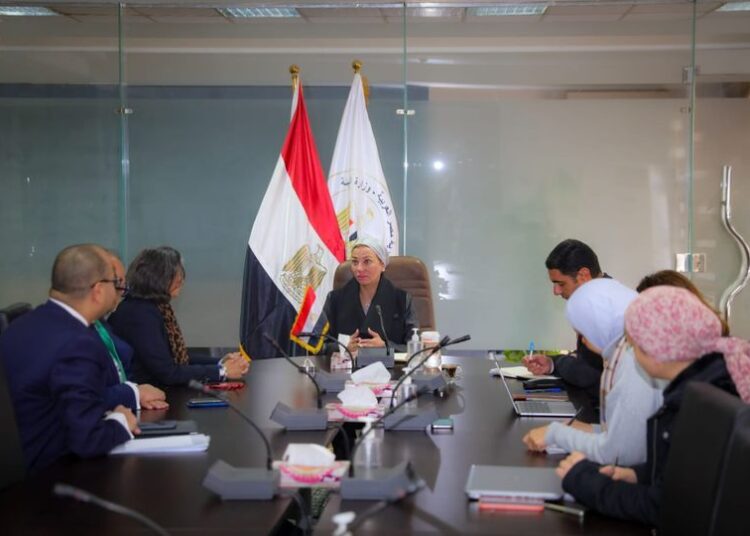Egypt’s Minister of State for Environmental Affairs Yasmine Fouad yesterday met with First Sub-Governor Governor of the Central Bank of Egypt (CBE) Mai Abul Naga and Deputy Governor for Financial Inclusion and Sustainability Sector Sherif Luqman to discuss co-operation in a sustainable finance system for climate projects.
This comes in line with the National Climate Change Strategy 2050 and the nationally determined contributions (NDCs), the minister said.
Achieving environmental sustainability witnessed a remarkable development during the past few years, as it shifted focus from reducing pollution to conserving resources, the minister added, stressing the importance of creating a climate financing system in co-operation with the CBE, local banks, development partners and the private sector.
The National Climate Investment Plan is one of the outcomes of the COP27 Climate Conference, which set a roadmap for climate finance at national level, Fouad said.
Private sector efforts must be rallied to fund green projects and renewable energy ventures, particularly since the government offers incentives for this purpose, Fouad added.
The minister went on to emphasise the importance of co-operation with the CBE in implementing the goals of the National Climate Change Strategy 2050, through a roadmap clarifying the role of banks in executing each goal, in addition to highlighting promising opportunities as a step towards the implementation of NDCs.
Egypt has set the deadline five years earlier to generate 42 per cent of energy needs from renewable sources at 2030, while an estimated 20 per cent of Egypt’s enery mix comes from in renewable, she said.
Last year, the government set priority areas for decarbonisation, such as renewable energy, green hydrogen, alternatives to single-use plastics, waste management and nature-based solutions, Fouad said.
Industry, which contributes 28 per cent of Egypt’s carbon dioxide emissions, is another area of focus.
“We need to look at how a green value chain can be fully integrated in the industrial sector,” Fouad said. “We need to go down at the level of small and medium-sized enterprises (SMEs) and start at a very early stage.”






Discussion about this post